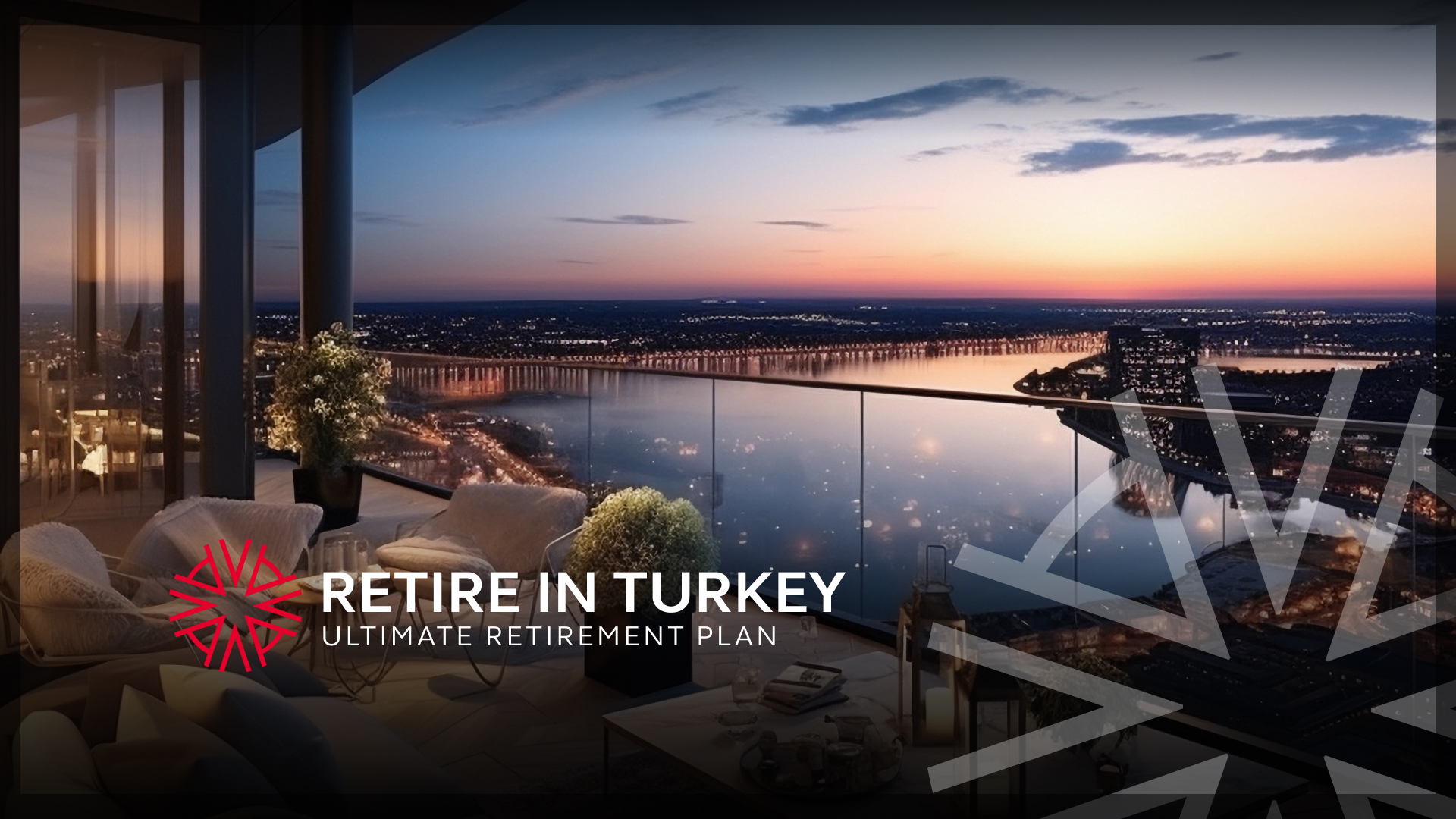As the United Kingdom bids farewell to its long-standing non-domiciled tax program, the Non-Dom Tax Regime – scheduled for termination by April 2025 – the landscape of tax and investment migration for British investors has suddenly become profoundly transforming.
The seismic shift in the UK has catalyzed a ripple effect across Europe and the Caribbean, presenting challenges and opportunities for high-net-worth individuals (HNWIs) seeking tax-efficient solutions by acquiring high-end global mobility assets such as a second citizenship or residency.
Luckily, there are many to choose from, and for British entrepreneurs, investors, and families, this not only legally and effectively circumvents the UK’s move away from its non-dom status but also remedies the consequences of Brexit.
UK scraps Non-Dom Tax Regime
As the tax landscape evolves, the demand for Golden Visas and Citizenship by Investment Programs (CIPs) in the EU and beyond is set to increase. These programs offer residency or citizenship in exchange for investment into the local economy, often accompanied with favorable tax options for the foreign entrepreneur, investor, and family.
Countries like Portugal, Spain, Greece, Cyprus, and Malta have leveraged their Golden Visa and non-dom programs to attract affluent individuals seeking tax efficiency and mobility from all over the world.
Now, that the appeal of residing in the UK wanes, these nations may experience an influx of interest from non-doms seeking new opportunities and tax benefits that offer competitive advantages without sacrificing lifestyle demands or standards.
These Golden Visas and CIPs allow investors to obtain a preferred taxation framework alongside a robust residency opportunity in an EU country. This combination provides an optimal alternative to the UK, especially for investors who want to maintain their financial and residential footholds in European markets.
However, for those open to looking elsewhere, the Caribbean also offers a highly interesting blend of favorable taxation fused with global mobility assets.
The implications for non-domiciled taxpayers in the UK
Abolishing the UK’s Non-Dom Regime will have far-reaching implications for the UK’s non-domiciled residents.
As things stand, these individuals enjoy a remittance basis of taxation, whereby they are only liable for UK tax on foreign income and gains they bring into the country.
However, starting on 6 April 2025, this advantageous treatment will cease.
Non-doms will face a substantial increase in their UK tax liability, as they will be subject to UK tax on their global income and gains. This will align their tax obligations more closely with those who are actually and permanently domiciled in the UK.
This significant shift in tax treatment will prompt sophisticated non-doms to reassess their investment strategies and portfolios.
As their preferential tax treatment from offshore investments erodes, UK non-doms who don’t find a new non-dom program to leverage will likely need to shift towards UK-based investments to mitigate the impact of the new rules.
The UK government has also signaled its intention on aligning Inheritance Tax (IHT) with the new residence-based regime, further complicating estate planning for non-domiciled individuals.
While non-UK assets settled into trusts before April 2025 will retain their current tax treatment, those with substantial offshore assets may need to review their inheritance strategies to navigate the changing landscape.
Economic implications for the EU
The UK’s decision to abolish the Non-Dom Regime could have far-reaching benefits for several European Union (EU) members, influencing capital flows and investment into their borders.
With the UK’s tax advantage diminishing, EU countries with favorable tax regimes for wealthy foreigners, such as Greece’s non-dom tax program or Malta’s flat tax regime for new residents, may become more attractive destinations for non-domiciled individuals seeking tax-efficient residency.
Further, the past 12 months have witnessed incredible changes in numerous Golden Visa and citizenship by investment programs due to unprecedented demand by US and UK entrepreneurs, investors, and families as well as increasing pressure from the EU.
With the termination of the UK’s lucrative Non-Dom Regime and the expected migration of wealth away from the UK and into the EU, the next 12 months may be more interesting than the last.
The Mediterranean’s tax haven allure
As the UK’s non-dom regime fades into history – following Portugal’s extremely popular Non-Habitual Residency Tax Regime (NHR) – the Mediterranean region has emerged as a formidable contender in the global tax and investment migration landscape.
Nations like Greece, Malta, Cyprus, and Spain offer a compelling combination of tax advantages, investment opportunities, and lifestyle appeal, attracting a diverse clientele of HNWIs from all around the world.
Greece’s non-dom tax program
The Greek non-dom tax regime provides a tax-efficient structure for qualified individuals, allowing them to benefit from favorable tax treatment while enjoying the Mediterranean lifestyle.
Under the Greek tax program, individuals pay a lump-sum tax of €100,000 per tax year, regardless of the actual total income earned abroad, for a maximum of 15 fiscal years.
This program has positioned Greece as a desirable destination for HNWIs seeking a strategic base with access to the European Union.
Currently, the Greek Golden Visa offers the lowest investment threshold in the EU. It is scheduled to be updated by May 2024 and top out at a staggering €800K investment threshold.
Malta’s non-dom tax program
Malta’s non-dom tax program offers a unique blend of tax efficiency, residency, and citizenship opportunities.
By combining a favorable tax regime that caps remitted income in Malta at a flat 15% rate with the potential for residency or citizenship, Malta presents a comprehensive solution for affluent individuals seeking financial and mobility advantages within the EU.
Malta offers entrepreneurs, investors, and families two programs that result in either a Maltese Golden Visa or Maltese citizenship [and EU passport].
Cyprus’ tax programs
Cyprus offers an attractive Non-Dom Tax program and an equally attractive tax residency program.
The typical 183-day non-dom tax rule is in full effect for those who want to invest in the Cypriot Golden Visa program and leverage a powerful non-dom status.
Along with the non-dom tax residency option, Cyprus also offers favorable tax residency opportunities.
Cyprus provides a residency-based corporate tax of only 12.5%.
Further, Cyprus offers a 60-day tax residency option for those who want to change their tax residency. It allows individuals who work remotely from Cyprus for foreign-based companies to enjoy a 50% reduction in their taxes if they earn more than €100K a year.
Cyprus also provides a flat 5% on pensions if they exceed €3420 a month.
Spain’s ‘Beckham’s Law’
Never to be outdone by anyone, Spain has its own unique tax regime, known as ‘Beckham’s Law’ – as former FIFA star David Beckham was among the first to take advantage of the tax program.
‘Beckham’s Law’ offers foreign entrepreneurs and investors significant tax advantages.
It reduces their tax liability and enhances the country’s attractiveness as a destination for international talent and investment.
Under Beckham’s Law, non-domiciled residents pay a fixed reduced tax rate of 24% for income up to €600,000 a year for five years following the year of arrival, and this even applies if you live in the country full-time.
These Mediterranean nations have leveraged their tax and investment programs to carve out a niche in the global market, catering to the diverse needs of HNWIs seeking tax optimization, investment opportunities, and lifestyle benefits – however, while they are the best options in the EU, they are not the only options.
Other EU non-dom tax options
There are a few other tax programs for non-doms to consider, though these programs could be a bit trickier to navigate.
Ireland’s non-dom tax & remittance program
Sort of cut from the same wool as its UK counter-part, the Irish program is believed by some to be more favorable – due to the fact that an individual could enjoy the program benefits indefinitely and they can begin from Day 1.
Under the program, Ireland will only tax income that enters the country – which is why it is referred to as a remittance program more so than a non-dom program.
However, the working definition of ‘remittance’ is fluid and it does not necessarily mean if the money remains outside Ireland, it remains outside the Irish tax regime.
Also, it still is a non-dom program, and if Irish authorities feel that you have made Ireland your regular/permanent domicile, you will no longer qualify.
Italy’s tax programs
Even though entrepreneurs and investors are finding out the hard way that the one-euro villa is not much more than a great marketing scheme, Italy does have a few tax benefits to offer to qualifying individuals.
The Italian Lump-Sum Tax regime allows foreign entrepreneurs and investors to pay a flat €100K tax payment annually regardless of how much they actually earn.
However, the income must be generated from outside Italy and the program only extends to the first 15 years in the country – and is only open to new residents.
The Italian program provides much more privacy in financial transactions than many other programs do, but the first five years of the program operates differently than the last 10 years, so many end up paying taxes they thought they would avoid.
However, Italy does have a flat 7% tax rate program for pensioners who relocated to specific areas in the south of Italy.
Again, there are a list of conditions that must be met, but if you successfully get into the program, you will enjoy the flat 7% tax for 10 years.
Monaco, of course
Though not a member of the EU, thanks to Monaco’s Golden Visa, it is an option inside the EU worth mentioning.
Monaco is world-renowned as being among the most luxurious tax havens in the world.
While Monaco is not an actual zero-tax environment, it does not levy any personal income tax or tax capital gains.
While it could be possible to become eligible for citizenship in Monaco after residing there for a decade or more, the principality does not recognize dual citizenship, so this is only an option for someone who is also adding renunciation to their strategy.
The Caribbean Five’s power play: Tax haven residency & a second passport
While the EU’s non-dom tax programs and their respective criteria are a bit nuanced, the Caribbean Five’s response to the evolving investment migration landscape has been more proactive and straight-forward with very streamlined citizenship by investment programs in:
- Antigua & Barbuda
- Grenada
- Saint Lucia
- Saint Kitts & Nevis
- Dominica
Globally known for their CIPs, the Caribbean Five have introduced personal and corporate tax policies that create genuine zero-tax environments.
These tax residency + citizenship programs offer a compelling proposition for globally mobile investors. They provide favorable tax conditions alongside offshore banking options that can be leveraged with citizenship rights and privacy protections.
The Caribbean nations do not levy global income, wealth, capital gains, or inheritance taxes on their citizens.
They also continuously introduce corporate tax exemptions for economic diversification and fostering a nurturing business environment.
This strategic pivot diversifies the Caribbean’s economic reliance beyond CIP-driven revenues and positions the Caribbean as an attractive destination for entrepreneurs, investors, and families from both sides of the Atlantic seeking tax efficiency and mobility.
The Caribbean Five also presents an investment threshold much lower than the EU, with the ability to obtain citizenship for an investment starting at $100,000.
The Caribbean countries have signed an historic collective agreement to increase investment requirements to at least $200,000 “no later than 30 June 2024”
This allows US, UK, and virtually any entrepreneur or investor to restructure their tax burden favorably as citizens by giving them the flexibility they need to alleviate and mitigate their tax burdens legally.
Astons – A partner to navigate your future
The shifting dynamics within the global tax and investment migration arena underscore the importance of informed decision-making, seasoned international professionals, and expert guidance.
As nations compete to attract global wealth, the interplay between tax policies with Golden Visas and citizenship solutions continues to evolve, presenting opportunities for HNWIs to benefit and positively impact the economies that welcome them.
In this rapidly changing landscape, proactive monitoring of regulatory updates, economic strategies, and geopolitical developments is crucial.
By staying abreast of these changes and leveraging the expertise of industry and legal professionals, HNWIs can navigate the complexities of the global investment migration market and make strategic decisions aligned with their personal and financial objectives.
Abolishing the UK’s Non-Dom Tax Regime is just the first move, as it has ushered in a new era of tax and investment migration opportunities across Europe and the Caribbean.
While the implications for non-domiciled taxpayers in the UK are significant, the UK’s loss will prove to be a gain for jurisdictions offering opportunities to those the UK has turned its back on.
As the Caribbean Five and the Mediterranean nations of Greece, Malta, Cyprus, and Spain capitalize on this shift, only time will tell how long the current ground-floor opportunities will continue to exist.
In this rapidly transforming environment, the importance of partnering with an industry leader who has been on the inside since the industry began cannot be overstated or underestimated.
Astons leverages our 30+ years of seasoned industry leadership to continue molding the future of our space and the futures of our clients.
Schedule a Free Confidential and Comprehensive Consultation with an expert at Astons today, and our team will provide you a list of solutions that satisfy your wants, dreams, goals, and demands.














